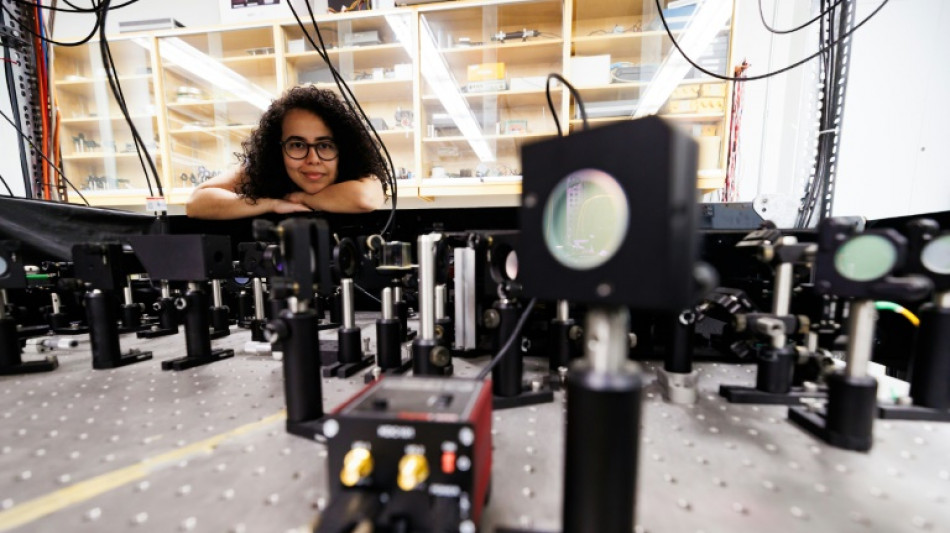
-
 Three killed in Taipei metro attacks, suspect dead
Three killed in Taipei metro attacks, suspect dead
-
Seven Colombian soldiers killed in guerrilla attack: army

-
 Amorim takes aim at Man Utd youth stars over 'entitlement'
Amorim takes aim at Man Utd youth stars over 'entitlement'
-
Mercosur meets in Brazil, EU eyes January 12 trade deal

-
 US Fed official says no urgency to cut rates, flags distorted data
US Fed official says no urgency to cut rates, flags distorted data
-
Rome to charge visitors for access to Trevi Fountain

-
 Spurs 'not a quick fix' for under-fire Frank
Spurs 'not a quick fix' for under-fire Frank
-
Poland president accuses Ukraine of not appreciating war support

-
 Stocks advance with focus on central banks, tech
Stocks advance with focus on central banks, tech
-
Amorim unfazed by 'Free Mainoo' T-shirt ahead of Villa clash

-
 PSG penalty hero Safonov ended Intercontinental win with broken hand
PSG penalty hero Safonov ended Intercontinental win with broken hand
-
French court rejects Shein suspension

-
 'It's so much fun,' says Vonn as she milks her comeback
'It's so much fun,' says Vonn as she milks her comeback
-
Moscow intent on pressing on in Ukraine: Putin

-
 UN declares famine over in Gaza, says 'situation remains critical'
UN declares famine over in Gaza, says 'situation remains critical'
-
Guardiola 'excited' by Man City future, not pondering exit

-
 Czechs name veteran coach Koubek for World Cup play-offs
Czechs name veteran coach Koubek for World Cup play-offs
-
PSG penalty hero Safonov out until next year with broken hand

-
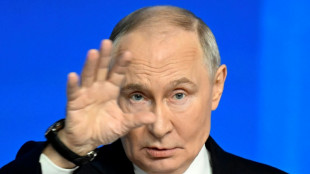 Putin says ball in court of Russia's opponents in Ukraine talks
Putin says ball in court of Russia's opponents in Ukraine talks
-
Czech Zabystran upsets Odermatt to claim Val Gardena super-G

-
 NGOs fear 'catastrophic impact' of new Israel registration rules
NGOs fear 'catastrophic impact' of new Israel registration rules
-
US suspends green card lottery after MIT professor, Brown University killings
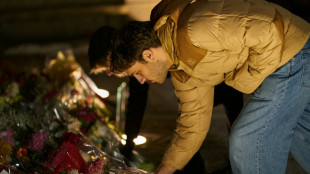
-
 Arsenal in the 'right place' as Arteta marks six years at club
Arsenal in the 'right place' as Arteta marks six years at club
-
Sudan's El-Fasher under the RSF, destroyed and 'full of bodies'

-
 From farms to court, climate-hit communities take on big polluters
From farms to court, climate-hit communities take on big polluters
-
Liverpool have 'moved on' from Salah furore, says upbeat Slot

-
 Norway crown princess likely to undergo lung transplant
Norway crown princess likely to undergo lung transplant
-
Iraq negotiates new coalition under US pressure

-
 France's budget hits snag in setback for embattled PM
France's budget hits snag in setback for embattled PM
-
Putin hails Ukraine gains, threatens more, in annual press conference
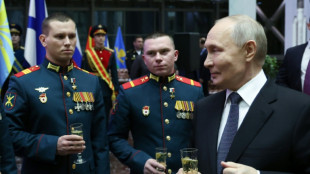
-
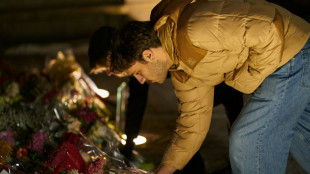 US suspends green card lottery after Brown, MIT professor shootings
US suspends green card lottery after Brown, MIT professor shootings
-
Chelsea's Maresca says Man City link '100 percent' speculation

-
 Dominant Head moves into Bradman territory with fourth Adelaide ton
Dominant Head moves into Bradman territory with fourth Adelaide ton
-
Arsenal battle to stay top of Christmas charts

-
 Mexican low-cost airlines Volaris and Viva agree to merger
Mexican low-cost airlines Volaris and Viva agree to merger
-
Border casinos caught in Thailand-Cambodia crossfire

-
 Australia's Head slams unbeaten 142 to crush England's Ashes hopes
Australia's Head slams unbeaten 142 to crush England's Ashes hopes
-
Epstein files due as US confronts long-delayed reckoning
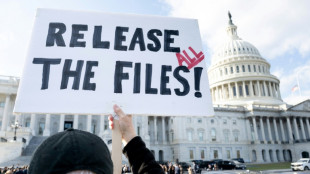
-
 'Not our enemy': Rush to rearm sparks backlash in east Germany
'Not our enemy': Rush to rearm sparks backlash in east Germany
-
West Indies 110-0, trail by 465, after Conway's epic 227 for New Zealand

-
 Arsonists target Bangladesh newspapers after student leader's death
Arsonists target Bangladesh newspapers after student leader's death
-
Volatile Oracle shares a proxy for Wall Street's AI jitters

-
 Tears at tribute to firefighter killed in Hong Kong blaze
Tears at tribute to firefighter killed in Hong Kong blaze
-
Seahawks edge Rams in overtime thriller to seize NFC lead

-
 Teenager Flagg leads Mavericks to upset of Pistons
Teenager Flagg leads Mavericks to upset of Pistons
-
Australia's Head fires quickfire 68 as England's Ashes hopes fade

-
 Japan hikes interest rates to 30-year-high
Japan hikes interest rates to 30-year-high
-
Brazil's top court strikes down law blocking Indigenous land claims

-
 Conway falls for 227 as New Zealand pass 500 in West Indies Test
Conway falls for 227 as New Zealand pass 500 in West Indies Test
-
'We are ghosts': Britain's migrant night workers
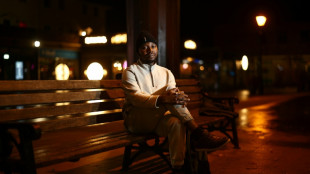

Scientists observe 'negative time' in quantum experiments
Scientists have long known that light can sometimes appear to exit a material before entering it -- an effect dismissed as an illusion caused by how waves are distorted by matter.
Now, researchers at the University of Toronto, through innovative quantum experiments, say they have demonstrated that "negative time" isn't just a theoretical idea -- it exists in a tangible, physical sense, deserving closer scrutiny.
The findings, yet to be published in a peer-reviewed journal, have attracted both global attention and skepticism.
The researchers emphasize that these perplexing results highlight a peculiar quirk of quantum mechanics rather than a radical shift in our understanding of time.
"This is tough stuff, even for us to talk about with other physicists. We get misunderstood all the time," said Aephraim Steinberg, a University of Toronto professor specializing in experimental quantum physics.
While the term "negative time" might sound like a concept lifted from science fiction, Steinberg defends its use, hoping it will spark deeper discussions about the mysteries of quantum physics.
- Laser experiments -
Years ago, the team began exploring interactions between light and matter.
When light particles, or photons, pass through atoms, some are absorbed by the atoms and later re-emitted. This interaction changes the atoms, temporarily putting them in a higher-energy or "excited" state before they return to normal.
In research led by Daniela Angulo, the team set out to measure how long these atoms stayed in their excited state. "That time turned out to be negative," Steinberg explained -- meaning a duration less than zero.
To visualize this concept, imagine cars entering a tunnel: before the experiment, physicists recognized that while the average entry time for a thousand cars might be, for example, noon, the first cars could exit a little sooner, say 11:59 am. This result was previously dismissed as meaningless.
What Angulo and colleagues demonstrated was akin to measuring carbon monoxide levels in the tunnel after the first few cars emerged and finding that the readings had a minus sign in front of them.
- Relativity intact -
The experiments, conducted in a cluttered basement laboratory bristling with wires and aluminum-wrapped devices, took over two years to optimize. The lasers used had to be carefully calibrated to avoid distorting the results.
Still, Steinberg and Angulo are quick to clarify: no one is claiming time travel is a possibility. "We don't want to say anything traveled backward in time," Steinberg said. "That's a misinterpretation."
The explanation lies in quantum mechanics, where particles like photons behave in fuzzy, probabilistic ways rather than following strict rules.
Instead of adhering to a fixed timeline for absorption and re-emission, these interactions occur across a spectrum of possible durations -- some of which defy everyday intuition.
Critically, the researchers say, this doesn't violate Einstein's theory of special relativity, which dictates that nothing can travel faster than light. These photons carried no information, sidestepping any cosmic speed limits.
- A divisive discovery -
The concept of "negative time" has drawn both fascination and skepticism, particularly from prominent voices in the scientific community.
German theoretical physicist Sabine Hossenfelder, for one, criticized the work in a YouTube video viewed by over 250,000 people, noting, "The negative time in this experiment has nothing to do with the passage of time -- it's just a way to describe how photons travel through a medium and how their phases shift."
Angulo and Steinberg pushed back, arguing that their research addresses crucial gaps in understanding why light doesn’t always travel at a constant speed.
Steinberg acknowledged the controversy surrounding their paper's provocative headline but pointed out that no serious scientist has challenged the experimental results.
"We've made our choice about what we think is a fruitful way to describe the results," he said, adding that while practical applications remain elusive, the findings open new avenues for exploring quantum phenomena.
"I'll be honest, I don’t currently have a path from what we've been looking at toward applications," he admitted. "We're going to keep thinking about it, but I don't want to get people's hopes up."
F.Pedersen--AMWN


